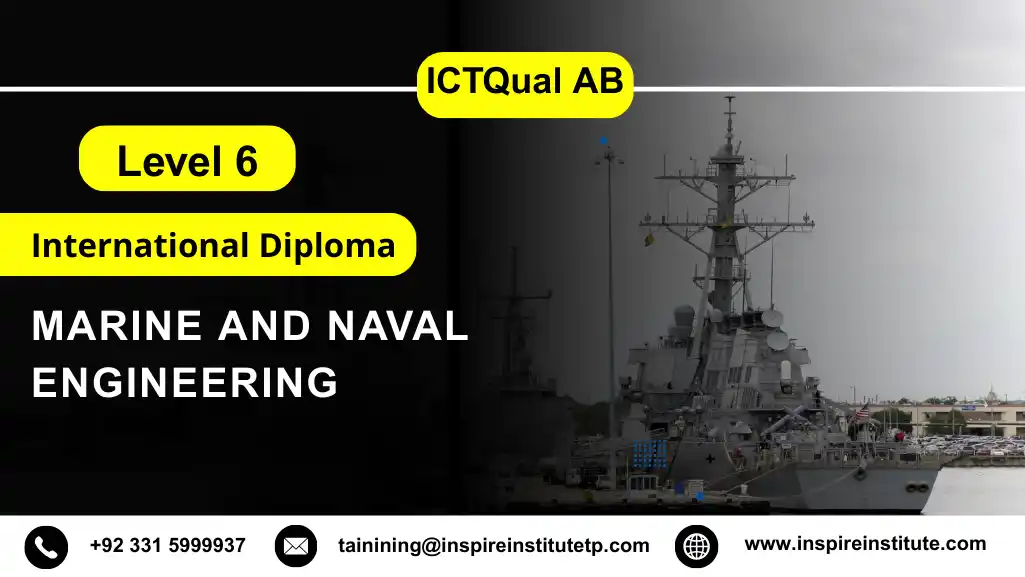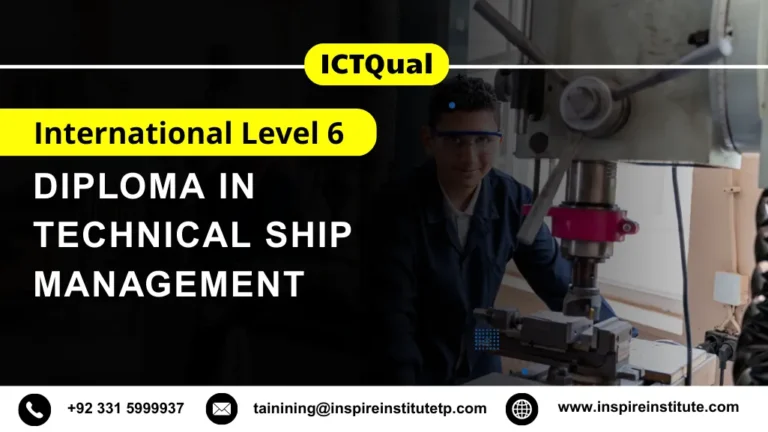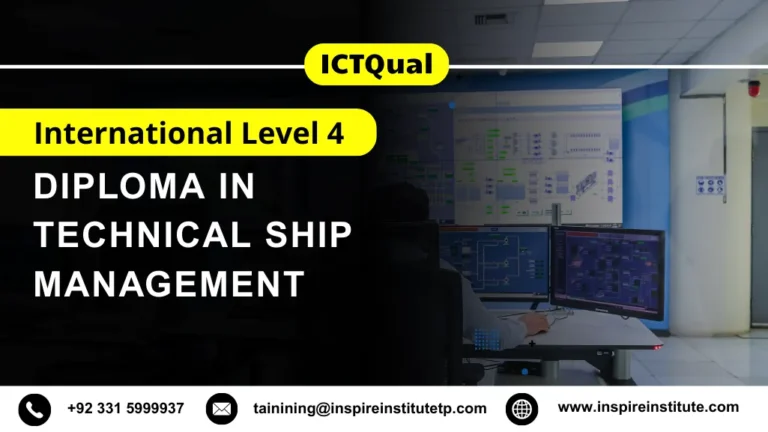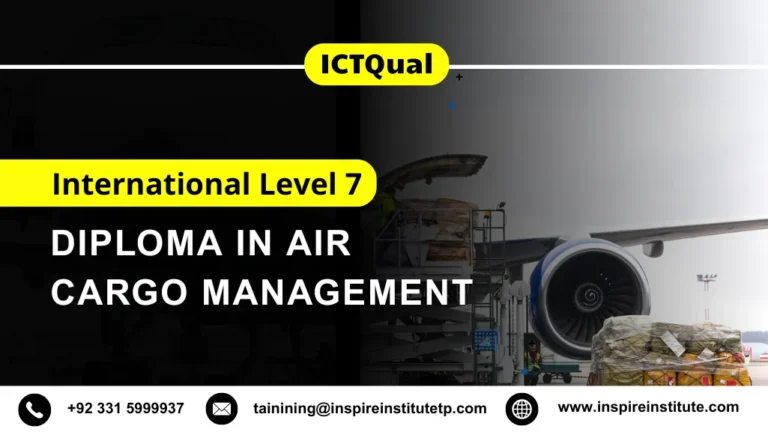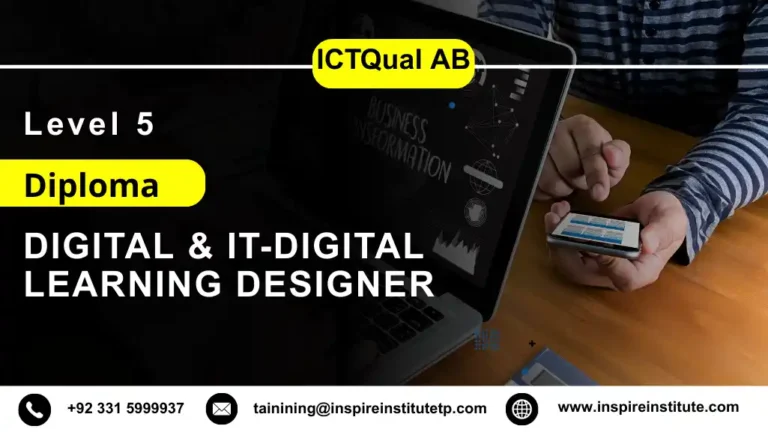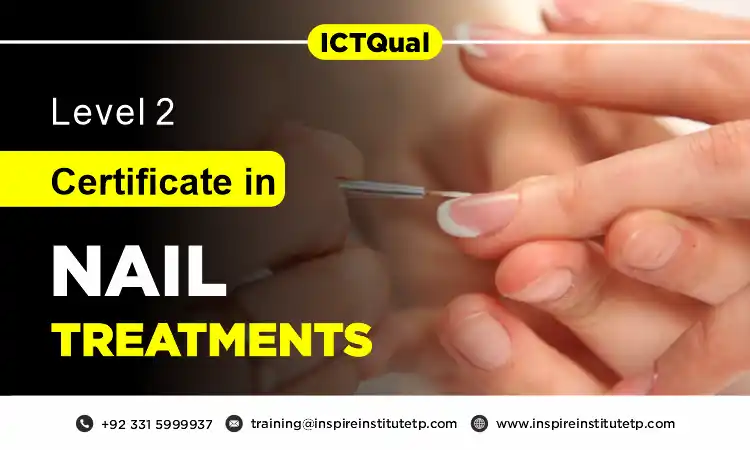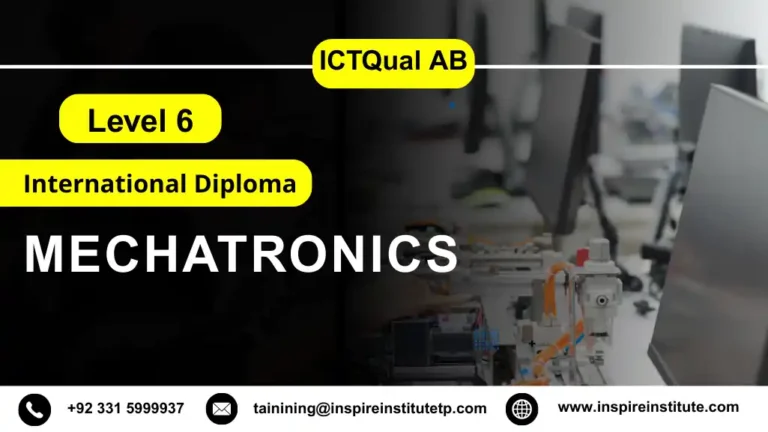ICTQual AB Level 6 International Diploma in Marine and Naval Engineering
The ICTQual AB Level 6 International Diploma in Marine and Naval Engineering is a prestigious program designed for aspiring professionals who wish to excel in the dynamic maritime and naval engineering sector. This internationally recognized diploma equips learners with advanced technical knowledge, practical skills, and strategic insights required to succeed in modern marine industries. Whether you are aiming to work in ship design, naval architecture, marine propulsion systems, or offshore engineering, this diploma provides a comprehensive foundation for a rewarding career.
Offered by ICTQual AB, this Level 6 International Diploma in Marine and Naval Engineering combines theoretical learning with practical applications to ensure graduates are fully prepared for real-world challenges. The program covers critical areas including marine engineering principles, naval systems, ship construction, marine safety, propulsion technologies, and environmental regulations. Students gain hands-on experience through workshops, laboratory exercises, and project-based assessments, enabling them to apply their learning in professional settings.
The ICTQual AB Marine and Naval Engineering Diploma is ideal for learners seeking to enhance their expertise and career prospects in both commercial and defense maritime sectors. Graduates can pursue roles such as marine engineers, naval architects, shipbuilding consultants, offshore engineers, and maritime operations managers. Additionally, this international diploma opens pathways for further studies at higher academic levels or specialized certifications in marine and naval technologies.
Designed to accommodate both fresh learners and industry professionals, the International Diploma in Marine and Naval Engineering emphasizes innovation, safety, and sustainability in maritime operations. By completing this diploma, learners develop a deep understanding of the latest engineering practices, industry standards, and emerging technologies, positioning themselves as competent professionals capable of leading complex marine projects worldwide.
Enrolling in the ICTQual AB Level 6 International Diploma in Marine and Naval Engineering is a strategic step toward a successful career in the marine industry. With its globally recognized certification, practical training, and advanced curriculum, this program empowers learners to achieve professional excellence and stand out in the competitive maritime sector.
Why Choose this Qualification
Choosing the ICTQual AB Level 6 International Diploma in Marine and Naval Engineering is a strategic step for anyone looking to build a successful career in the maritime and naval sector. This internationally recognized qualification combines advanced theoretical knowledge with practical skills, preparing learners for high-demand roles in shipbuilding, naval architecture, marine propulsion, and offshore engineering. By enrolling in this diploma, learners gain a globally respected certification, hands-on experience, and industry-relevant expertise that opens doors to diverse career opportunities in both commercial and defense maritime industries.
1. Globally Recognized Certification
- The ICTQual AB Level 6 International Diploma in Marine and Naval Engineering is recognized worldwide.
- Enhances your credibility in the marine and naval engineering sector.
- Opens opportunities for international employment.
- Boosts professional profile for maritime and offshore industries.
- Supports applications for advanced studies in marine engineering.
- Demonstrates your commitment to professional excellence.
- Trusted by employers and training centers globally.
2. Comprehensive Curriculum
- Covers all essential areas of marine and naval engineering.
- Includes ship design, naval systems, propulsion technologies, and marine safety.
- Emphasizes environmental compliance and sustainable maritime practices.
- Practical and theoretical learning integrated for real-world application.
- Prepares learners for technical and managerial roles in marine industries.
- Keeps you updated with the latest industry standards and practices.
- Offers a balance of academic rigor and hands-on experience.
3. Practical Skills Development
- Provides hands-on training through workshops and lab exercises.
- Develops problem-solving skills relevant to marine engineering challenges.
- Encourages innovation and application of engineering theories.
- Projects simulate real-life scenarios in shipbuilding and offshore operations.
- Enhances technical competency in both naval and commercial sectors.
- Builds confidence for independent and collaborative work.
- Ensures readiness for high-responsibility engineering roles.
4. Career Advancement Opportunities
- Graduates can work as marine engineers, naval architects, and offshore engineers.
- Opens roles in shipbuilding, maritime operations, and naval consultancy.
- Provides pathways to leadership positions in maritime projects.
- Supports applications for specialized certifications in marine technologies.
- Strengthens employability in defense and commercial marine sectors.
- Enhances potential for promotions and salary growth.
- Equips learners with skills for long-term career stability.
5. Flexible Learning Options
- Designed for both fresh learners and industry professionals.
- Combines classroom and practical learning for diverse needs.
- Allows learners to pace their studies according to personal schedules.
- Can be pursued at ICTQual AB-approved training centers worldwide.
- Supports blended learning approaches for accessibility.
- Encourages continuous professional development.
- Balances academic study with career and personal commitments.
6. Industry-Relevant Knowledge
- Focuses on modern marine engineering techniques and technologies.
- Trains learners on international safety and operational standards.
- Emphasizes sustainable engineering solutions for maritime operations.
- Prepares learners to handle advanced naval and offshore projects.
- Keeps learners updated with emerging trends in marine technologies.
- Ensures graduates are job-ready and industry-competent.
- Strengthens analytical and strategic decision-making skills.
7. Pathway to Further Studies
- Enables progression to advanced diplomas and degrees.
- Prepares learners for specialized marine and naval engineering courses.
- Supports professional certifications recognized globally.
- Provides foundation for research and development roles.
- Opens opportunities for postgraduate studies in maritime engineering.
- Enhances academic credentials for international career prospects.
- Encourages lifelong learning in marine and naval engineering fields.
Course Overview
UK based Qualification
Study Units: 36 Units
Evidence & Assignment Based
Course Level: Level 6
Qualification Structure
This qualification, the ICTQual AB Level 6 International Diploma in Marine and Naval Engineering, consists of 36 mandatory units.
Year 1 – Foundation in Marine and Naval Engineering
- Principles of Marine and Naval Engineering
- Engineering Mathematics
- Fundamentals of Mechanical and Electrical Engineering
- Materials Science and Engineering
- Engineering Drawing and Computer-Aided Design (CAD)
- Introduction to Fluid Mechanics and Hydrodynamics
- Basics of Marine Propulsion Systems
- Naval Architecture – Fundamentals
- Marine Structures and Ship Construction
- Health, Safety, and Environmental Practices in Maritime Engineering
- Communication and Technical Report Writing
- Introduction to Project Management in Engineering
Year 2 – Intermediate Studies in Marine and Naval Engineering
- Marine Hydrodynamics and Stability
- Marine Propulsion and Power Systems
- Structural Analysis and Ship Design
- Offshore and Coastal Engineering – Fundamentals
- Marine Electrical and Control Systems
- Materials and Corrosion in Marine Environments
- Marine Maintenance and Reliability Engineering
- Computational Methods in Naval Architecture
- Sustainable Maritime Engineering and Green Technologies
- Applied Research Methods in Marine Engineering
- Port and Harbour Engineering – Basics
- Project Planning and Marine Operations Management
Year 3 – Advanced Studies in Marine and Naval Engineering
- Advanced Ship Design and Modelling
- Advanced Propulsion and Power Plant Systems
- Offshore Structures and Subsea Engineering
- Advanced Hydrodynamics and Computational Fluid Dynamics (CFD)
- Naval Defence Systems and Military Applications
- Smart Marine Technologies and Industry 4.0
- Robotics and Autonomous Systems in Maritime Engineering
- Cyber-Physical Systems and IoT in Marine Engineering
- Professional Ethics and Sustainability in Marine & Naval Engineering
- Innovation and Entrepreneurship in Marine Technology
- Infrastructure and Facility Planning for Maritime Systems
- Final Year Major Project (Capstone Project)
Who Should Take This Course
The ICTQual AB Level 6 International Diploma in Marine and Naval Engineering is designed for individuals who aspire to build a successful career in the maritime and naval engineering sector. This course is ideal for aspiring engineers, naval professionals, offshore specialists, and graduates who want to gain advanced technical knowledge, practical skills, and internationally recognized certification in marine engineering.
1. Aspiring Marine Engineers
- Individuals looking to start a career in marine and naval engineering.
- Those interested in ship design, propulsion systems, and offshore technologies.
- Learners who want a globally recognized qualification in marine engineering.
- Candidates aiming for technical roles in commercial and defense sectors.
- Individuals seeking hands-on practical training in naval engineering.
- Students looking to gain theoretical knowledge alongside practical skills.
- Those aspiring to work on advanced maritime projects worldwide.
2. Naval Architects and Ship Designers
- Professionals aiming to enhance skills in naval architecture.
- Those interested in ship construction, design, and stability analysis.
- Individuals who want to specialize in modern shipbuilding technologies.
- Learners preparing for leadership roles in design and construction projects.
- Candidates looking to gain a recognized international certification.
- Those seeking advanced knowledge in marine systems and structural analysis.
- Professionals aiming to meet industry standards in naval design.
3. Offshore and Maritime Professionals
- Individuals working in offshore engineering, oil rigs, or maritime operations.
- Professionals aiming to upgrade technical knowledge in marine systems.
- Those interested in sustainable and safe offshore operations.
- Employees seeking career advancement in marine and naval industries.
- Learners preparing for project management and supervisory roles.
- Candidates looking for a qualification recognized internationally.
- Those aiming to gain practical and theoretical expertise in offshore projects.
4. Defense and Naval Personnel
- Naval officers and defense engineers seeking specialized skills.
- Individuals interested in ship propulsion, naval systems, and fleet maintenance.
- Personnel aiming to upgrade professional expertise with an international diploma.
- Candidates who want to enhance technical knowledge for operational roles.
- Professionals planning to lead maritime or naval projects.
- Those looking for a certification recognized in both commercial and defense sectors.
- Learners seeking career growth in naval engineering and maritime operations.
5. Engineering Graduates
- Fresh graduates in mechanical, electrical, or marine engineering.
- Students who want to specialize in naval and marine technologies.
- Individuals aiming to combine theoretical knowledge with practical experience.
- Graduates looking for international recognition and career opportunities.
- Those preparing for roles in shipbuilding, naval architecture, or offshore operations.
- Learners seeking to build expertise in modern marine engineering practices.
- Candidates interested in global career prospects in the maritime industry.
6. Career Changers
- Professionals from related engineering fields seeking a maritime career.
- Individuals aiming to transition into marine or naval engineering roles.
- Candidates looking to gain a globally recognized diploma for career growth.
- Learners interested in acquiring practical skills applicable to maritime projects.
- Those seeking flexible learning options to balance career and studies.
- Professionals aiming to expand knowledge in advanced marine technologies.
- Individuals preparing for specialized roles in commercial and defense maritime sectors.
7. International Learners
- Professionals preparing for advanced studies or certifications abroad.
- Students seeking a qualification recognized worldwide.
- Professionals looking to work in international maritime and naval industries.
- Individuals aiming for opportunities in offshore, shipping, and defense sectors.
- Candidates interested in gaining global exposure in marine engineering.
- Those seeking professional development with international standards.
- Learners aiming to enhance employability in competitive marine markets.
Certification Route
The ICTQual AB Level 6 International Diploma in Marine and Naval Engineering offers flexible certificate routes tailored to meet the needs of both beginners and experienced professionals. Whether you are new to the field or already possess significant industry experience, these pathways ensure that all learners can achieve internationally recognized certification while developing the skills and knowledge required for a successful career in marine and naval engineering.
Route for Candidates with No Experience
This pathway is perfect for learners who are new to Marine and Naval Engineering and do not yet have professional experience.
- Admission: Learners enrol at an ICTQual AB Approved Training Centre to begin the three-year programme.
- Training: Complete all required study units through structured classroom lessons, practical workshops, and online learning modules.
- Assessment: Submit assignments, technical reports, and case studies, and complete project work based on the learning outcomes of each unit.
- Certification: On successful completion of all assessments, learners are awarded the ICTQual AB Level 6 International Diploma in Marine & Naval Engineering, demonstrating both technical competence and professional readiness.
Route for Experienced and Competent Candidates
This pathway is designed for professionals who already have relevant industry experience in Marine and Naval Engineering or related fields and want to gain formal recognition of their expertise.
- Eligibility: Open to professionals with a minimum of 6 years’ experience in marine engineering, naval operations, offshore engineering, or related sectors.
- Assessment of Competence: Centres review prior work experience and assess existing skills against the diploma’s learning outcomes.
- Evidence Submission: Learners provide portfolios, work records, and documented evidence of practical competence in marine and naval engineering tasks.
- Knowledge and Understanding: Centres may conduct a skills gap analysis and provide targeted learning modules where required to ensure full coverage of essential concepts.
- Certification: Upon successful verification of prior learning and competence, learners are awarded the ICTQual AB Level 6 International Diploma in Marine and Naval Engineering without completing the full three-year programme.can achieve a globally recognized Level 6 qualification in Marketing and Sales Management, preparing them for advanced roles and international career opportunities.
Eligibility Criteria
To enrol in the ICTQual AB Level 6 International Diploma in Marine and Naval Engineering, learners must meet certain entry requirements that ensure they are prepared for both the academic and technical aspects of this advanced qualification. These criteria are designed to welcome learners from different backgrounds while maintaining the high standards expected in marine and naval engineering.
Minimum Age: Applicants must be at least 18 years old at the time of enrolment.
Educational Background:
A Level 5 Diploma or equivalent qualification in engineering, marine studies, or related technical disciplines.
Applicants without formal qualifications may be considered based on experience and prior learning.
Strong foundation in mathematics, physics, or engineering principles is recommended.
Professional Experience:While not mandatory, candidates with work experience in marine engineering, ship operations, or naval systems will have an advantage.
Experienced professionals may qualify for Recognition of Prior Learning (RPL).
Work-based evidence can be submitted for entry consideration.
Language Proficiency: Learners must demonstrate proficiency in English or the language of instruction.
Accepted tests may include IELTS, TOEFL, or equivalent qualifications.
Ensures ability to understand technical terms, safety standards, and engineering documentation.
Future Progression
Earning the ICTQual AB Level 6 International Diploma in Marine and Naval Engineering provides graduates with a wealth of opportunities to advance their education and careers. Whether learners aim to pursue higher studies, grow in professional roles, or explore global opportunities, this diploma equips them with the knowledge, skills, and recognition needed to progress successfully.
1. Progression to Higher Academic Qualifications
- Enrol in a Level 7 Diploma in Marine or Naval Engineering.
- Apply for MSc in Marine Engineering, Naval Architecture, or Offshore Engineering.
- Access to postgraduate studies in related technical or management fields.
- Foundation for advanced research programmes in marine technologies.
- Opportunity to move into engineering education and training roles.
- Access to specialized technical certifications in naval or offshore systems.
- Builds a pathway towards a doctoral (PhD) programme in engineering disciplines.
2. Career Opportunities in Marine Engineering
- Work as a Marine Engineer with global shipping companies.
- Secure roles as Maintenance Engineer or Propulsion Engineer on vessels.
- Employment in shipyards, dry docks, and marine equipment industries.
- Opportunities to work on designing and testing propulsion systems.
- Engage in marine safety and compliance engineering roles.
- Join R&D departments for developing advanced marine machinery.
- Employment in green marine technology initiatives focusing on sustainability.
3. Career Opportunities in Naval and Offshore Sectors
- Serve as a Naval Engineering Officer with defence organizations.
- Work as an Offshore Engineer in oil, gas, or renewable energy platforms.
- Secure jobs with naval architecture firms or defense contractors.
- Contribute to design and development of naval vessels.
- Engage in maintenance and safety operations on offshore rigs.
- Take on roles in marine defence technology projects.
- Opportunities in coastal and offshore renewable energy projects.
4. Pathways to Engineering Management Roles
- Transition into Project Engineer roles overseeing marine projects.
- Move up to Technical Manager in ship operations or naval fleets.
- Opportunities as Fleet Operations Manager in international shipping.
- Positions as Marine Engineering Supervisor in shipyards.
- Leadership roles in naval shipbuilding programmes.
- Career growth into Engineering Director positions.
- Pathway towards executive management roles in marine industries.
5. International Career Mobility
- Work with leading international shipping companies.
- Access job opportunities in Europe, Middle East, and Asia.
- Recognition in global offshore oil and gas projects.
- Demand for naval engineers in shipbuilding nations like South Korea, Japan, and Germany.
- Opportunities in maritime regulatory and classification organizations.
- Work on international naval and defense collaborations.
- Ability to relocate to global marine innovation hubs.
6. Professional Certifications and Memberships
- Apply for Chartered Engineer (CEng) status (region-dependent).
- Eligibility for membership in international engineering bodies.
- Access to marine engineering certification programmes.
- Recognition as a professional engineer in global markets.
- Improve career credibility through industry-accredited certifications.
- Pathway towards specialist marine safety and inspection licenses.
- Opportunity to attend professional workshops, seminars, and conferences.
7. Entrepreneurial and Consultancy Opportunities
- Establish a marine consultancy business offering technical solutions.
- Provide compliance and safety consultation to shipping companies.
- Offer maintenance and operational support services.
- Develop expertise in eco-friendly marine technologies as a consultant.
- Start a training and skill development centre for marine engineers.
- Work as an independent contractor on naval and offshore projects.
- Engage in advisory roles for government and regulatory bodies.

